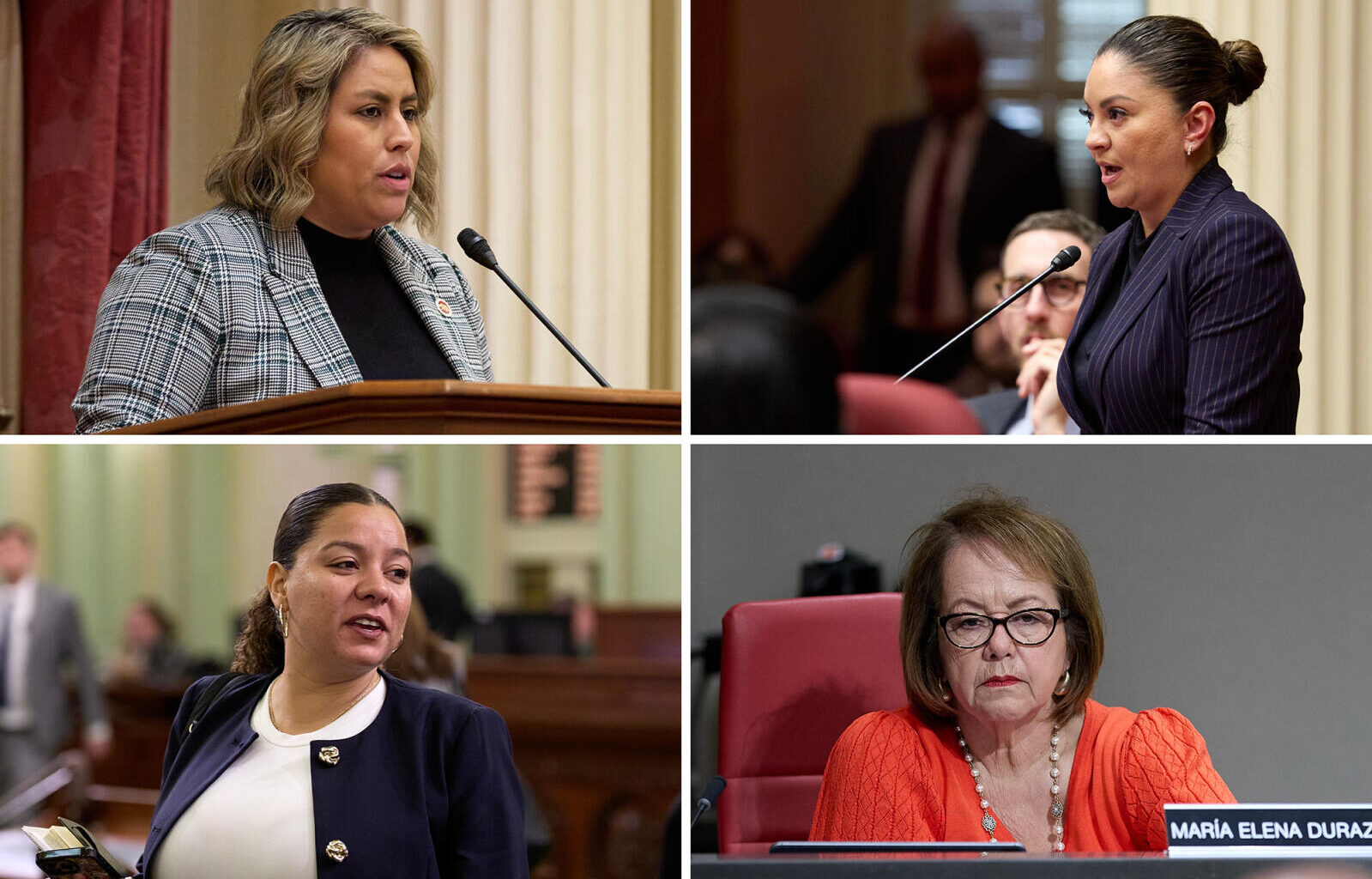Menjivar said she can’t support policies that single out a specific demographic. “It’s the ‘othering,’ where we’ve created a hierarchy of what human is eligible and what human is ineligible,” that she can’t stomach, she said.
For Durazo, “it’s the specific targeting of immigrants. That’s the problem.”
Health advocates rallied against the cuts for weeks and pressured lawmakers to walk back even deeper cuts proposed by Newsom. A coalition of groups representing health advocates, immigrant rights groups and labor lined the sidewalks on a recent day as lawmakers walked into the building to vote on an earlier version of the budget that mirrors some of the final provisions. Their chant of “health for all” has been a rallying cry for the expansion since 2013.
“We can’t say we believe in universal health care…and say we’re going to make exceptions for this one population,” said Mar Velez, director of policy for the Latino Coalition for a Healthy California.
Caucus chair Sen. Lena Gonzalez, a Long Beach Democrat who abstained from voting on the Medi-Cal cuts, told CalMatters that her “conscience couldn’t bear freezing Medi-Cal benefits for hard working immigrants” especially in the face of immigration enforcement raids throughout Southern California. Assemblymember Sade Elhawary, a Democrat and Latino Caucus member from Los Angeles, also abstained, along with Sen. Lola Smallwood-Cuevas from Los Angeles, who is not a Caucus member.
Gonzalez said the cuts represent a “huge setback” for Californians struggling with affordability, especially when immigrants are “at the core of our economy.”
Undocumented immigrants “not only pay nearly $8.5 billion in taxes here in California, they build businesses, and raise the next generation of lawyers, doctors, and elected officials, just like the members of this California Latino Legislative Caucus,” Gonzalez said in a statement. “They too, deserve to be treated with dignity by ensuring their health is prioritized.”
During emotional debates, some legislators who voted in favor of the cuts characterized them as a best-case scenario that prevents anyone from getting kicked off of Medi-Cal, while others said many people will lose coverage as they struggle to make payments and drop off the rolls.
Some of the compromises worked into the budget include provisions to delay the cuts and try to prevent current enrollees from losing coverage. Under the new law, the freeze includes a three-month grace period for re-enrollment should someone fall off of Medi-Cal because of paperwork errors or temporary income increases. Youths who are already enrolled in Medi-Cal will not “age out” once they turn 19.
The monthly premium and cut to dental benefits apply to non-citizens, including some with legal status like visa or green card holders, but only adults aged 19 to 59 will be required to pay the premium while all adults will lose dental.
Few other options to cut the deficit as Medi-Cal costs surge
The state spends more than $190 billion a year on the entire Medi-Cal program, about 60% of which comes from federal funds. About $12 billion of state-only revenue pays for immigrant health care.
Lawmakers have been grappling with funding the state’s Medi-Cal program, which insures 15 million Californians, for months. Earlier this year, legislators injected billions of emergency dollars into Medi-Cal to keep it solvent.
Rising health care costs and increased senior enrollment fueled a majority of the $6.2 billion shortfall. But finance officials indicated that about $2.7 billion resulted from higher spending on immigrant health care, which the state pays for without federal assistance.
Paired with the deficit Democrats had few options to balance the budget.
Elana Ross, a spokesperson for Newsom, defended the budget as one that preserves the state’s “commitment to immigrant communities.” In a statement, she blamed the increasing cost of health care, more people enrolling and President Donald Trump’s economic policies, including tariffs, for causing the state’s projected revenues to decrease by about $16 billion.
“Because of these outside factors, the state must take difficult but necessary steps to ensure fiscal stability and preserve the long-term viability of Medi-Cal for all Californians,” Ross said.
The move to cut immigrant benefits and bail out Medi-Cal earlier in the year gave political leverage to the state’s Republican lawmakers, most of whom have opposed the expansion for years. Ahead of the budget vote, many Republicans criticized the state for irresponsibly expanding a program that was already stretched thin and is frequently plagued by long wait times, lack of specialists and other access challenges.
